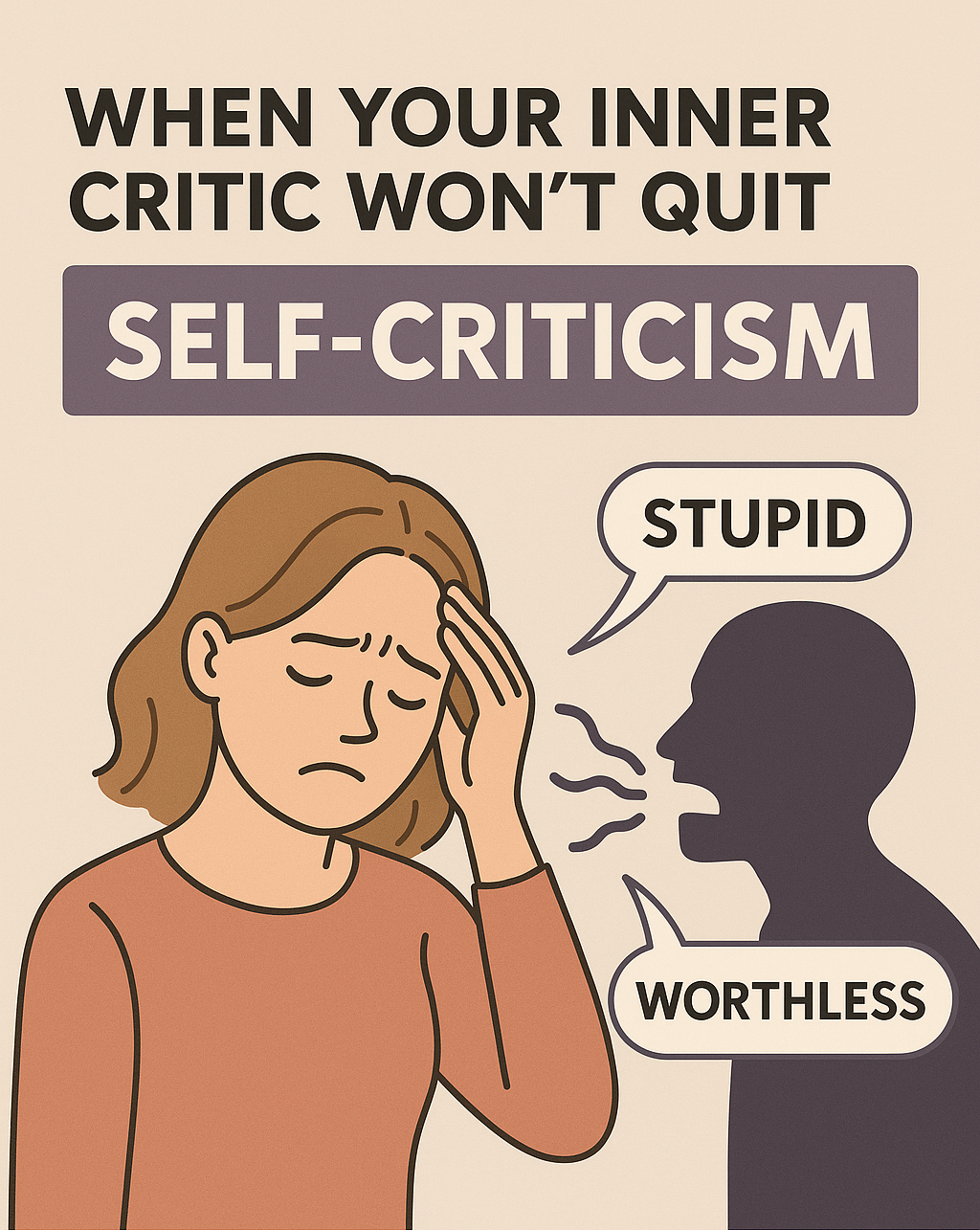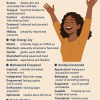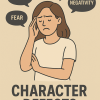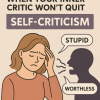When Your Inner Critic Won't Quit
Breaking Free from Self-Criticism in Just One Session
We all have that voice in our heads. You know the one—it shows up when you make a mistake, telling you you're "stupid" or "worthless." It whispers that you'll never be good enough when you're trying something new. For some of us, this inner critic is so loud and persistent that it drowns out everything else, turning daily life into a constant battle against ourselves.
The Hidden Cost of Being Your Own Worst Enemy
Self-criticism might feel like it's keeping you sharp or motivated, but research tells a different story. When we constantly judge and berate ourselves, our brains and bodies pay a steep price:
🔹 The Stress Spiral
Every harsh self-judgment triggers your body's stress response. Your heart races, muscles tense, and stress hormones flood your system—as if you're facing a real threat. Except the threat is coming from inside your own mind, meaning there's no escape.
🔹 The Motivation Myth
Many people believe self-criticism keeps them performing at their best. In reality, it does the opposite. When you're constantly afraid of your own judgment, you're more likely to:
- Procrastinate on important tasks
- Avoid challenges where you might fail
- Give up more quickly when things get tough
- Feel exhausted from the mental energy spent attacking yourself
🔹 The Relationship Ripple Effect
How you talk to yourself shapes how you interact with others. Harsh self-critics often:
- Assume others judge them as harshly as they judge themselves
- Have difficulty accepting compliments or support
- Push people away to avoid potential criticism
- Project their self-judgment onto others
🔹 The Mental Health Toll
Chronic self-criticism is linked to:
- Depression and anxiety
- Perfectionism that paralyzes rather than motivates
- Difficulty bouncing back from setbacks
- A persistent sense of never being "enough"
Why Traditional Approaches Often Fall Short
If you've struggled with self-criticism for years, you might have tried various approaches—positive affirmations, therapy, self-help books. While these can help, they often require weeks or months of consistent practice before you see results. And when you're drowning in self-judgment, waiting that long for relief can feel impossible.
This is where Single-Session Interventions (SSIs) offer something different: immediate, tangible relief that you can build on.
How One Session Can Shift Your Inner Dialogue
Single-Session Interventions work by creating a powerful "aha moment" that immediately changes how you relate to your thoughts. Instead of spending months trying to silence your inner critic, an SSI helps you:
1️⃣ Recognize the Pattern
In just 15-20 minutes, you'll identify exactly how your self-criticism operates—its favorite phrases, when it shows up, and what triggers it. This awareness alone often provides instant relief, as you realize these thoughts are just patterns, not truths.
2️⃣ Understand the Science
You'll learn how self-criticism affects your brain and why it feels so automatic. Understanding that this is a learned pattern—not a character flaw—helps you approach change with curiosity rather than more self-judgment.
3️⃣ Practice a New Response
Through a guided exercise, you'll experience what it feels like to respond to mistakes or challenges with self-compassion instead of criticism. This isn't about fake positivity—it's about treating yourself with the same kindness you'd show a good friend.
4️⃣ Create Your Personal Plan
You'll leave with a specific "if-then" strategy: "If I notice self-critical thoughts, then I will..." This concrete plan makes it easier to catch yourself in the moment and choose a different response.
What Makes SSIs Different
✅ Immediate Impact
You don't have to wait weeks to feel different. Many people report feeling lighter and more hopeful immediately after their session.
✅ Focused and Practical
Instead of exploring your entire life history, SSIs zero in on specific patterns and give you tools to change them right away.
✅ Backed by Research
Studies show that even brief interventions can create lasting change when they target specific thought patterns and provide clear action steps.
✅ Accessible to Everyone
Whether you have 15 minutes or can't access traditional therapy, SSIs meet you where you are.
Your Inner Critic Doesn't Have to Run the Show
Imagine waking up tomorrow and making a mistake—maybe spilling coffee or sending an email with a typo. But instead of launching into your usual self-attack, you pause. You take a breath. You think, "I'm human, and humans make mistakes." You clean up the coffee or send a quick correction, and you move on with your day.
This might sound small, but it's revolutionary. When you stop wasting energy attacking yourself, you free up mental space for growth, creativity, and connection.
Ready to Try a Different Approach?
If you're tired of being your own worst enemy, a Single-Session Intervention could be your turning point. In less than 20 minutes, you can:
🔹 Understand why your brain defaults to self-criticism
🔹 Learn the science of self-compassion
🔹 Practice responding to yourself with kindness
🔹 Create a personal plan for catching and redirecting critical thoughts
The most powerful part? You don't need to believe it will work. You just need to be willing to try something different for a few minutes.
The First Step is the Hardest (and the Most Important)
Breaking free from self-criticism isn't about becoming soft or losing your edge. It's about recognizing that you can be honest about your mistakes and areas for growth without being cruel to yourself. It's about becoming your own supportive coach instead of your harshest critic.
In a world that often feels critical enough, you deserve to have at least one person fully in your corner—and that person can be you.
Remember: Change doesn't require perfection. It just requires one moment of choosing differently. And that moment could be right now.
If constant self-criticism is significantly impacting your daily life or you're having thoughts of self-harm, please reach out to a mental health professional. SSIs are powerful tools for change, but some situations require ongoing support.






